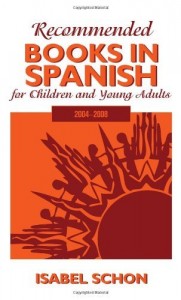 When I became Editor-in-Chief of MultiCultural Review in 1994, I began to work with a number of brilliant and passionate experts on multicultural literature for children who had been with the journal since its founding in 1991. These people welcomed me and taught me valuable lessons about journal publishing and aspects of multicultural literature and multicultural library services for children, because even though I had edited a bibliography of multicultural books for children and teens, there were things I didn’t know and many new things to find out.
When I became Editor-in-Chief of MultiCultural Review in 1994, I began to work with a number of brilliant and passionate experts on multicultural literature for children who had been with the journal since its founding in 1991. These people welcomed me and taught me valuable lessons about journal publishing and aspects of multicultural literature and multicultural library services for children, because even though I had edited a bibliography of multicultural books for children and teens, there were things I didn’t know and many new things to find out.
One of my best teachers was Dra. Isabel Schon. I knew about her pioneering bibliographies of books in Spanish and books about the Latino experience for children and adolescents, which came out in the late 1970’s. Updated editions appeared regularly through 2009 with Scarecrow Press’s publication of Recommended Books in Spanish for Children and Young Adults, 2004 to 2008. Dra. Schon founded the Barahona Center for the Study of Books in Spanish for Children and Adolescents at California State University—San Marcos, which collected titles published in Spain, Latin America, and the United States and offered annual workshops in English and Spanish for educators and librarians. Following her retirement from the university in 2009, Dra. Schon created a sizable collection of children’s and young adult books in Spanish at the San Diego Public Library through the Isabel Schon International Center for Spanish Books for Youth.
I had the privilege of speaking regularly with Dra. Schon when we worked together at MultiCultural Review. She wrote a semi-annual column that evaluated books in Spanish, bilingual books, and books in English about the Latino experience. She had strong opinions and didn’t shy away from expressing them, even when her opinions ruffled a few feathers. For instance, she decried many of the young adult titles published in Spain, which she considered preachy, intended more to teach lessons of good behavior than to draw readers in through an engaging story and fresh use of language. She criticized books that used Peninsular Spanish when the setting and audience was Latin America or the United States. She also called out publishers, especially those in the United States, whose Spanish-language books contained errors, missing articles, and clumsy literal translations that failed to capture the beauty of the language or the feeling of the work.
In my last phone conversation with Dra. Schon, in the summer of 2009, we discussed the state of Spanish-language publishing in the midst of the global recession. She was especially concerned about funding cuts in the U.S. and many Latin American countries as well as cutbacks at Spanish publishers that jeopardized the output, quality, and variety of new titles. This was of special concern to her since Spanish and Latin American publishers had started to produce edgier and more appealing fiction and nonfiction for teens. (I had been on the prowl for such books in a pair of recent trips to Spain and believed that I had found a YA novel she’d appreciate—Care Santos’s Okupada—but we never had a chance to discuss it.) She expressed hope that publishers in the United States would pick up the slack, given the growth of the Latino population and its young age distribution.
Although Dra. Schon passed away on March 2, 2011 at the age of 71, her work lives on in her many books, in her articles and reviews for MultiCultural Review, Booklist, and other publications, and in the countless scholars, teachers, and librarians who have attended her classes and workshops over the years.
4 comments for “In Memoriam: Dra. Isabel Schon”